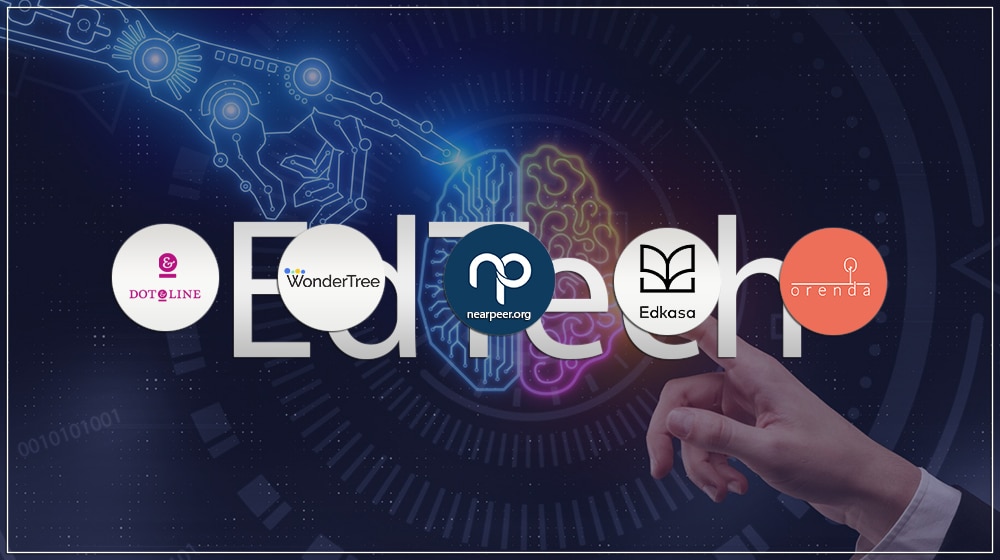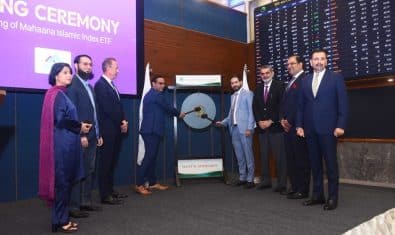The EdTech companies that seem to have emerged during the pandemic have surprisingly been intact long before it. However, it was the lack of investment opportunities and the bleak tech ecosystem that had hindered their expansions and usage by people.
It was a call for concern for educationists when governments announced complete closures of schools last year, putting millions of students at risk of dropout. Following the economic setback, Pakistan’s EdTech industry was one of the few industries that did not suspend its services, and saw this as an opportunity for innovation and to provide alternative learning solutions to children.
Fortunately, Pakistan has never lacked talent. Despite the challenging circumstances, there have been significant efforts made by local EdTech entrepreneurs to introduce innovative learning strategies to address this educational crisis. With features ranging from game-based assessments, animated video lessons, and customized learning resources to incorporating robotics in providing advanced STEM education for children, the EdTech platforms began to provide promising learning solutions.
As many schools, especially the private ones, also attempted to adopt new learning methodologies when they shifted to remote learning, what truly sets some of the EdTech companies apart from the private institutions was their business model that is based on affordability and accessibility.
EdTech companies around the world have managed to identify the need to bring down the cost of education well in time. While some EdTech companies in Pakistan are not for profit and are solely funded by grants, some companies have managed to generate revenue along with providing affordable costs.
Here are examples of a few of them:
- Edkasa: Subscription Model
Edkasa is a leading EdTech startup in Pakistan that helps higher secondary and high school students prepare for examinations online. It uses a subscription-based model that charges students on a monthly basis according to their chosen plans. Each subject costs Rs. 889 per month, and all the subjects cost Rs. 3,499 per month as part of the ‘exam package’.
A package that may still be a barrier for the lowest-earning segment of society is still more attractive and affordable as compared to the other private academies charging around Rs. 7,000 to Rs 10,000 per month for a single subject.
Edkasa has managed to provide its users access to over 800 videos that contain free STEM learning material on YouTube, and has recorded 1.3 million hours of viewing time so far.
- WonderTree: Free Demo + Subscription Model
This is another Pakistani startup aimed at creating Augmented Reality (AR) games to provide children with learning disabilities with interactive and immersive learning opportunities. It initially began as a B2B (business-to-business) model whereby the company would provide its services to schools based on their needs.
However, with the closure of schools, WonderTree had to shift to a B2C (business-to-consumer) model to access consumers directly to provide them with free-of-cost learning courses. Upon finding itself in a financially acute position, WonderTree was bound to expand outside of education and find other avenues to generate revenue. Currently, it has been able to reach a total of 57 schools and more than 6,000 users.
- Dot and Line Learning: Free Trial + Subscription Model
Dot and Line Learning is a strong network of expert tutors providing online learning classes on a subscription model. It offers a free demo followed by a purchase option that currently has two fixed packages consisting of worksheets, quizzes, and other learning exercises. One is a monthly package for Rs. 4,500, and the other is a 3-month package for Rs. 10,100.
Dot and Line Learning also provides the option of customizing the packages to make them more relevant and cost-friendly for users. Users have access to multiple free resources such as live stream Art, STEM, and Language classes within these packages.
- Orenda Project: Subscription and Enterprise Sales Model
The Orenda Project is a social startup aimed at using technology to provide high-quality digital education to those without access to it.
It claims to have impacted the lives of 179,000 learners over the years by providing them an opportunity to learn the national curriculum through animated videos and interactive quizzes.
It includes a learning app called ‘Taleemabad’ for kids to learn courses through video lessons and participate in gamified assessments. The app has over 1 million users and can be downloaded for free, and includes some in-app purchases.
The Orenda Project also provides a retail service in the form of a digital book that costs Rs. 4000. The digital book is a playing device that works offline and contains an entire year’s resources for the user to learn the curriculum. The book can be recharged after a period of time and is meant to be a one-time investment for families with multiple children.
- NearPeer: Pay as you go Model
NearPeer is another online educational platform for the provision of quality learning experiences at a relatively affordable cost as compared to the market. It runs on the pay-as-you-go model whereby the user has to pay a discounted amount to access the courses.
With a total of eight different areas of study, including O and A Levels, F. Sc., university entry tests, university courses, ACCA, CSS, MDCAT, and CA, NearPeer has reached more than 125,428 students overall.
In an attempt to increase access and the enrollment of students, it also offers multiple methods of payment to facilitate the process of payment.
Barriers to Growth
With the use of these models, the industry has claimed to have had a huge rise in their usage and profits. However, the success of these companies remains largely relative. Despite their growth over the years, many have still not been able to achieve scale. One reason for this is the imbalance between scale and monetization.
Some companies provide more free material than what is needed for them to generate reasonable revenues, while those offering higher-cost packages aimed at generating revenues are unable to get enough of a user-base that is willing to pay. This puts the companies under greater pressure to understand their users and their products to strike a balance between achieving scale and finding ways to monetize their services.
One barrier to both scale and monetization is the digital divide. According to CBS Insights, 42 percent of startups fail because their products do not solve the actual problem. In the case of these startups, the real problem that they claim to be solving is the lack of access to quality education, but with their existing models, are they really able to reach the population in need? The pandemic has deprived many of the opportunity to receive quality education, besides making it more difficult for them to fill the gap in learning that is caused by technological inequalities.
The Pakistan Telecommunications Authority states that only one million school-age children have regular access to digital devices and bandwidth, which means that access to smartphones and the Internet by the other millions of Pakistani students is out of the question. Internet connection is often expensive, and many areas are affected by poor internet services. Families of more than four children often have to make do with only one gadget, and others are completely deprived of this opportunity.
It is also important to understand that the consumers of these learning resources may be students but the owners and operators of the gadgets and apps are their parents and teachers who are often poorly equipped in technological skills themselves.
Way Forward
While it is clear that there is tremendous potential for growth and further innovation in Pakistan’s EdTech industry, it is also certain that its development from the ground up requires significant knowledge and research of its consumers. There is a dire need to have a clear understanding of the user base that is accessing the resources and making the decisions to use them.
It is also necessary to understand the ecosystem in which these companies are to operate. Issues of accessibility and affordability will remain as long as the technological divide remains and multi-device compatibility or multi-language options are not introduced. Quality education will continue to be compromised if the government does not invest in a private sector partnership.
The EdTech companies in Pakistan may not have achieved scale in the way it is required for the industry to flourish and for education to be out of threat, but there is surely potential for progress.


























